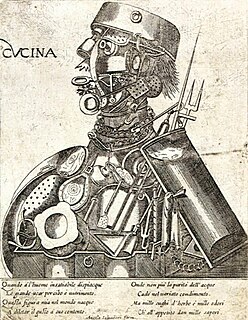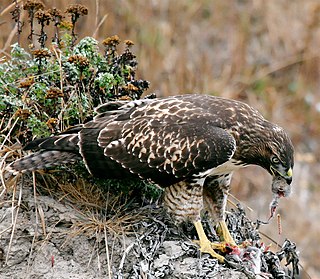Hedonism refers to a family of theories, all of which have in common that pleasure plays a central role in them. Psychological or motivational hedonism claims that human behavior is determined by desires to increase pleasure and to decrease pain. Normative or ethical hedonism, on the other hand, is not about how we actually act but how we ought to act: we should pursue pleasure and avoid pain. Axiological hedonism, which is sometimes treated as a part of ethical hedonism, is the thesis that only pleasure has intrinsic value. Applied to well-being or what is good for someone, it is the thesis that pleasure and suffering are the only components of well-being. These technical definitions of hedonism within philosophy, which are usually seen as respectable schools of thought, have to be distinguished from how the term is used in everyday language, sometimes referred to as "folk hedonism". In this sense, it has a negative connotation, linked to the egoistic pursuit of short-term gratification by indulging in sensory pleasures without regard for the consequences.

Transhumanism is a philosophical and intellectual movement which advocates the enhancement of the human condition by developing and making widely available sophisticated technologies that can greatly enhance longevity and cognition.

Mind uploading is a speculative process of whole brain emulation in which a brain scan is used to completely emulate the mental state of the individual in a digital computer. The computer would then run a simulation of the brain's information processing, such that it would respond in essentially the same way as the original brain and experience having a sentient conscious mind.

Suffering, or pain in a broad sense, may be an experience of unpleasantness or aversion, possibly associated with the perception of harm or threat of harm in an individual. Suffering is the basic element that makes up the negative valence of affective phenomena. The opposite of suffering is pleasure or happiness.
This Index of ethics articles puts articles relevant to well-known ethical debates and decisions in one place - including practical problems long known in philosophy, and the more abstract subjects in law, politics, and some professions and sciences. It lists also those core concepts essential to understanding ethics as applied in various religions, some movements derived from religions, and religions discussed as if they were a theory of ethics making no special claim to divine status.

Humanity+ is a non-profit international educational organization that advocates the ethical use of technologies and evidence-based science to improve the human condition. This condition includes the health of physiological and neurological functions affected by aging and disease, the ecological health and well-being for all life forms, and the future advancements for a more human humanity. Its work includes:
David Sztybel is a Canadian philosopher specializing in animal ethics.

James J. Hughes is an American sociologist and bioethicist. He is the Executive Director of the Institute for Ethics and Emerging Technologies and teaches health policy at Trinity College in Hartford, Connecticut in the United States. He is the author of Citizen Cyborg: Why Democratic Societies Must Respond to the Redesigned Human of the Future and is currently writing a book about moral bioenhancement tentatively titled Cyborg Buddha: Using Neurotechnology to Become Better People.

The Institute for Ethics and Emerging Technologies (IEET) is a "technoprogressive think tank" that seeks to "promote ideas about how technological progress can increase freedom, happiness, and human flourishing in democratic societies." It was incorporated in the United States in 2004, as a non-profit 501(c)(3) organization, by philosopher Nick Bostrom and bioethicist James Hughes.

Human extinction is the hypothetical end of the human species due to either natural causes such as population decline due to sub-replacement fertility, an asteroid impact or large-scale volcanism, or anthropogenic (human) causes, also known as omnicide. For the latter, some of the many possible contributors include climate change, global nuclear annihilation, biological warfare and ecological collapse. Other scenarios center on emerging technologies, such as advanced artificial intelligence, biotechnology, or self-replicating nanobots. The scientific consensus is that there is a relatively low risk of near-term human extinction due to natural causes. The likelihood of human extinction through its own activities, however, is a current area of research and debate.
Animal ethics is a branch of ethics which examines human-animal relationships, the moral consideration of animals and how nonhuman animals ought to be treated. The subject matter includes animal rights, animal welfare, animal law, speciesism, animal cognition, wildlife conservation, wild animal suffering, the moral status of nonhuman animals, the concept of nonhuman personhood, human exceptionalism, the history of animal use, and theories of justice. Several different theoretical approaches have been proposed to examine this field, in accordance with the different theories currently defended in moral and political philosophy. There is no theory which is completely accepted due to the differing understandings of what is meant by the term ethics; however, there are theories that are more widely accepted by society such as animal rights and utilitarianism.

Abolitionism or abolitionist veganism is the animal rights based opposition to all animal use by humans. Abolitionism intends to eliminate all forms of animal use by maintaining that all sentient beings, humans or nonhumans, share a basic right not to be treated as properties or objects. Abolitionist vegans emphasize that the production of animal products requires treating animals as property or resources, and that animal products are not necessary for human health in modern societies. Abolitionists believe that everyone who can live vegan is therefore morally obligated to be vegan.

Wild animal suffering is the suffering experienced by nonhuman animals living outside of direct human control, due to harms such as disease, injury, parasitism, starvation and malnutrition, dehydration, weather conditions, natural disasters, and killings by other animals, as well as psychological stress. Some estimates indicate that these individual animals make up the vast majority of animals in existence. An extensive amount of natural suffering has been described as an unavoidable consequence of Darwinian evolution and the pervasiveness of reproductive strategies which favor producing large numbers of offspring, with a low amount of parental care and of which only a small number survive to adulthood, the rest dying in painful ways, has led some to argue that suffering dominates happiness in nature.
The term directed evolution is used within the transhumanist community to refer to the idea of applying the principles of directed evolution and experimental evolution to the control of human evolution. In this sense, it is distinct from the use of the term in biochemistry, which refers only to the evolution of proteins and RNA. Maxwell J. Melhmanh has described directed evolution of humans as the Holy Grail of transhumanism. Oxford philosopher Julian Savulescu wrote that:
Humanity until this point has been a story of evolution for the survival genes - survival and reproduction ... we are entering a new phase of human evolution—evolution under reason—where human beings are masters of their destiny. Power has been transferred from nature to science.

Transhumanist politics constitutes a group of political ideologies that generally express the belief in improving human individuals through science and technology.
Negative utilitarianism is a form of negative consequentialism that can be described as the view that people should minimize the total amount of aggregate suffering, or that they should minimize suffering and then, secondarily, maximize the total amount of happiness. It can be considered as a version of utilitarianism that gives greater priority to reducing suffering than to increasing pleasure. This differs from classical utilitarianism, which does not claim that reducing suffering is intrinsically more important than increasing happiness. Both versions of utilitarianism hold that morally right and morally wrong actions depend solely on the consequences for overall aggregate well-being. 'Well-being' refers to the state of the individual.
Bioconservatism is a stance of hesitancy and skepticism regarding radical technological advances, especially those that seek to modify or enhance the human condition. Bioconservatism is characterized by a belief that technological trends in today's society risk compromising human dignity, and by opposition to movements and technologies including transhumanism, human genetic modification, "strong" artificial intelligence, and the technological singularity. Many bioconservatives also oppose the use of technologies such as life extension and preimplantation genetic screening.
The eradication or abolition of suffering is the concept of using biotechnology to create a permanent absence of pain and suffering in all sentient beings.
Suffering-focused ethics are those positions in ethics that give moral priority to the reduction of suffering. This means that they give greater weight to the reduction of suffering than to the promotion of pleasure, happiness, or to other things that one might consider valuable. According to some suffering-focused ethics, humans should concentrate exclusively on reducing preventable suffering. Other views can include additional features as the prevention of other disvalues or the promotion of other positive values while giving priority to reducing preventable suffering over them.
The Transhumanist Bill of Rights is a crowdsourced document that conveys rights and laws to humans and all sapient entities while specifically targeting future scenarios of humanity. The original version was created by transhumanist US presidential candidate Zoltan Istvan and was posted by Zoltan on the wall of the United States Capitol building on December 14, 2015.








